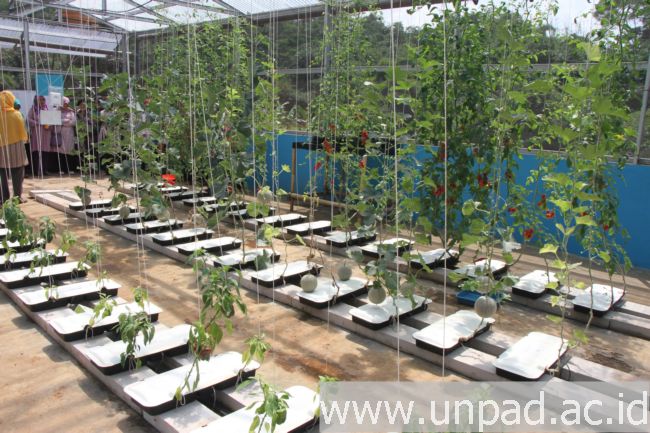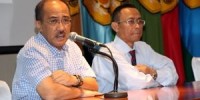[Unpad.ac.id, 30/08/2013] The 1998 monetary crisis has led to the growing number of poverty, increasing inflation flow, decreasing Gross Domestic Product (GDP), political dispute, corruption, and the fall of the New Order regime. The statement initiated the Minister of State Apparatus Empowerment and Bureaucracy Reform Republic of Indonesia, Ir. Azwar Abubakar’s speech on his first lecture at Unpad Post-Graduate Program on Friday (30/8) in Grha Sanusi Hardjadinata Unpad, which, he said, was then continued with bureaucracy reform.
“Post 1998 crisis starts the bureaucracy reform, and the impact is very significant, from the increasing GDP, the decreasing number of poverty, and the improved law enforcement. However, the bureaucracy still needs progress, said” Abubakar. Bureaucracy reform is necessary to achieve nation’s goals which would make Indonesia become independent and can compete with other nations.
To achieve such ideal condition, he suggested transformation in bureaucracy, which started with rule-based governance transforming to performance-based governance, and finally to dynamic governance. “The reform aims to realize a government which is clean from corruption, collusion, and nepotism, excellent and accountable service particularly to the public and business,” he said.
In relation with his position as the Minister, Abubakar offered 9 acceleration programs in bureaucracy reform, so that civil servants would work professionally in public service, which includes organizational structuring in every institution, civil servants number and distribution data collecting, open recruitment for civil servants, professionalism improvement, development of integrated electronic system, public service advance, apparatus integrity and accountability progress, public wealth, and employment expense efficiency.
In the first lecture with the theme “Indonesia Today and Tomorrow,” Unpad Rector, Prof. Ganjar Kurnia and Unpad Postgraduate Program Director, Prof. Mahfud Arifin were also present along with the Postgraduate students. For this batch, Unpad accepted 240 students for Doctoral Program, 811 students for Master Program. 231 for Specialist Program, and 208 for Profession Program.



